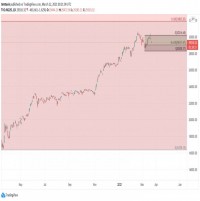|
Joy Abdullah, Brand Strategist, has more than 20 years of experience across ASEAN & the Indian sub-continent in developing and managing national, regional and international brands in a wide variety of industries covering Islamic Financial services, tourism, B2b Halal, telecommunications, beverages, real estate, tobacco, hospitality and healthcare. The global Islamic Finance industry is a $1 trillion industry with annual growth estimates ranging from 10 to 15 percent a year. Nevertheless, at the consumer level (and specifically retail banking) there is no 'real' market data available - certainly not in the open. Most of the industry statistics that are available have been focused on institutional preferences: after-the-fact product data and somewhat generic growth figures (alongside highly subjective forecasts). Thus far the 'classic' type of market research seems to have eluded the industry, this despite the fact that door-to-door written surveys have been replaced with the ease and rapidity of online tools. Not only that, but the predominant audience of Islamic finance surveys are the Islamic finance practitioners themselves, introducing a clear (albeit unintended) bias to any survey result. Furthermore, there is scant research available on the consumer perception and understanding of Islamic finance, from product specifics (i.e. what is ijara?) to the overall perception of the industry's value proposition (i.e. do consumers actually care?). Such critical analysis would be invaluable to the industry, specifically as input for the design of Islamic finance products that serve a real need amongst retail consumers. Such consumer perception studies could provide the Islamic Finance industry with a platform to: I. Develop basic financing products adhering to Shariah, which are applicable across geographical boundaries, thereby providing globally-operating IFIs a common product pool to use across markets and jurisdictions. II. Support global standards as opposed to country-specific or even company-specific SSB certification/approvals. III. Encourage the industry to innovate on areas of brand identity through service improvements, technology inputs and consumer wealth development. This would lead to an overall social and economic development in the markets that these IFIs operate in (and by virtue of that they would be living up to the essence/spirit of Islamic Finance). In this regard the following research papers provide some valuable insights: The lack of information/data on how Muslim consumers perceive and behave towards using Islamic financial products. Attitudes, Perceptions and Motivations of Libyan Retail Consumers toward
Islamic Methods of Finance Key Points: 1. Little is still known on how Muslims and non-Muslims are affected by
religious convictions in their financial decision-making. Despite the evolving
literature on Islamic finance, much work remains to be done on consumer
behaviour using more sophisticated choice-modelling techniques and more
extensive samples. Key Points: There is a clear lack of market data available that can lead to more precise conclusions, and the above research would be most welcome across a wider range of consumer markets. Hence it is increasingly obvious that a Consumer Survey is in much need to gauge awareness, perception, misconception and overall understanding. In the coming weeks we aim to develop and deploy such a study and share the findings to identify consumer segments, trends, as well as any country-specific issues. Hence we will be able to open a window into the mind of current (as well as prospective) consumers of Islamic finance products. Your feedback and comments are very important to us, please feel free to contact the author via email. |
Opalesque Islamic Finance Intelligence
Industry Snapshot: The Islamic Window - Consumer Perception and Market Research in Islamic Finance |





 RSS
RSS









